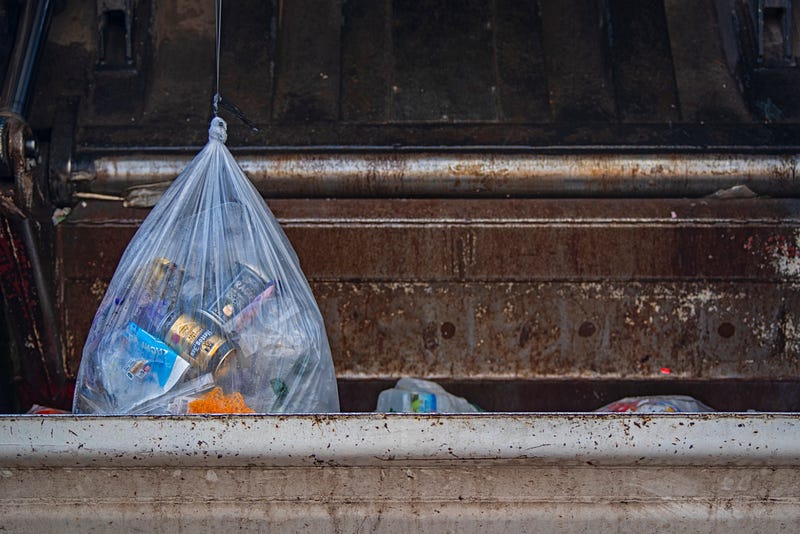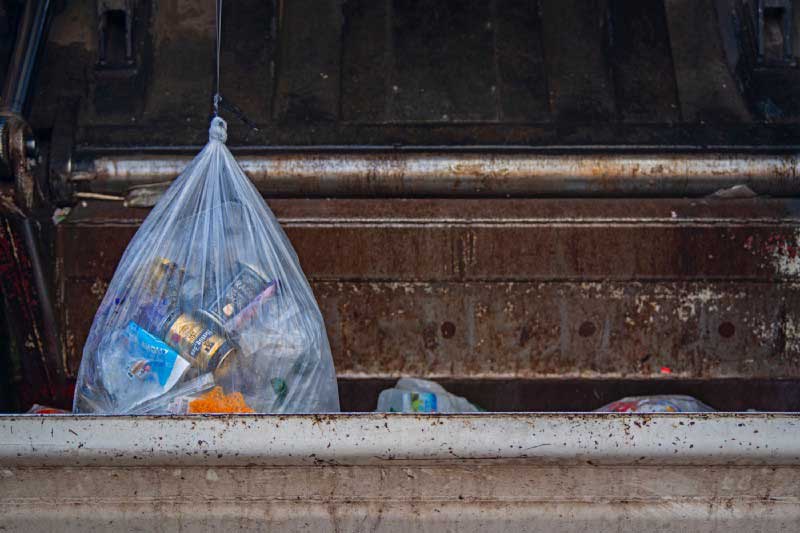By Eli Finkelson
From plastic to paper, New York businesses are forced to adapt during the pandemic

New York State declared months ago that a ban on single use plastic bags would take effect March 1. Because of the coronavirus pandemic, enforcement of the ban will not begin until May 15. Despite the delay, many stores on Long Island have either already switched to paper and reusable bags. Many others are struggling because of the times.
21 year old Peter O’Malley of Massapequa has noticed chain stores all around him already making the transition. “Everywhere. Target, the 7/11 by me and the one by Hofstra,” O’Malley noted. “I’ve seen it mostly in the chain stores, the big places aren’t using plastic anymore. It’s all paper bags in the stores, in the stores that even have bags left.”
For some smaller stores, the transition has been easy because they were already using paper bags to be environmentally conscious. Napolini Express, a small family owned pizza shop on Oak Street in Hempstead, NY, uses exclusively paper bags with one exception.
“We’ve always used both. We usually use paper bags except when it’s raining because if you leave a paper bag somewhere and it gets wet the whole thing falls apart,” said Shift Supervisor Ralph during a phone interview. “Believe it or not the edges of soda bottles rip bags the most. But we’ve always used paper bags.”
For other small businesses, the switch from plastic to paper hasn’t been so simple. As grocery stores become more overwhelmed with the pandemic sending people into a buying-frenzy, grocery stores simply have to use what they can to supply their customers.
“We just have to give them what we have and what we have is plastic.”
The Store Manager of North Shore Farms in Great Neck, NY, explained, “If they buy $150 in groceries we have to give them bags. It has nothing to do with the epidemic. We just have to give them what we have and what we have is plastic.”
The New England Journal of Medicine published an article last week, citing their findings that COVID-19 lives longer on plastic than it does on paper. Their experiment shows that the virus is able to live on plastic for up to 72 hours, whereas it can only live for up to 24 hours on paper. View the video below for more details on the NEJM experiment.
“Any small change we can make to potentially help the world be less polluted, we should do.”
Melissa Cohen, a nurse on Long Island and Plainview resident, thinks the plastic bag ban is a great idea, for the environment and to stop the spread of the coronavirus. “Any small change we can make to potentially help the world be less polluted, we should do.”
Cohen also noted that the world is still in the early stages of understanding the virus. “I know most stores are banning reusable bags right now,” Cohen said. “We just don’t know enough about transmission yet so I think we have to err on the side of caution.”
When asked about The New England Journal study, Cohen replied, “I think if all people would just be diligent about hand washing then the reusable bags shouldn’t be an issue.”
Some New Yorkers disagree with Cohen’s stance, blaming the plastic bag ban for the spike in COVID-19 cases in New York. New York has, over the last several weeks, become the epicenter of the disease in the US, with about 66,500 confirmed cases as of Sunday March 29.
Regardless of the backlash, environmentalists and politicians are still pushing ahead, supporting the ban, even if the enforcement date has been postponed.
New York is set to be at its peak worst for coronavirus cases in two to three weeks, leaving several weeks after the peak and before the ban’s enforcement is set to begin. Advocates on both sides are pushing for their own agendas, either for the ban’s enforcement as soon as possible, or doing away with the ban entirely. In the meantime, Long Islanders need not worry about any kind of fine from using single use plastic bags until May 15.







